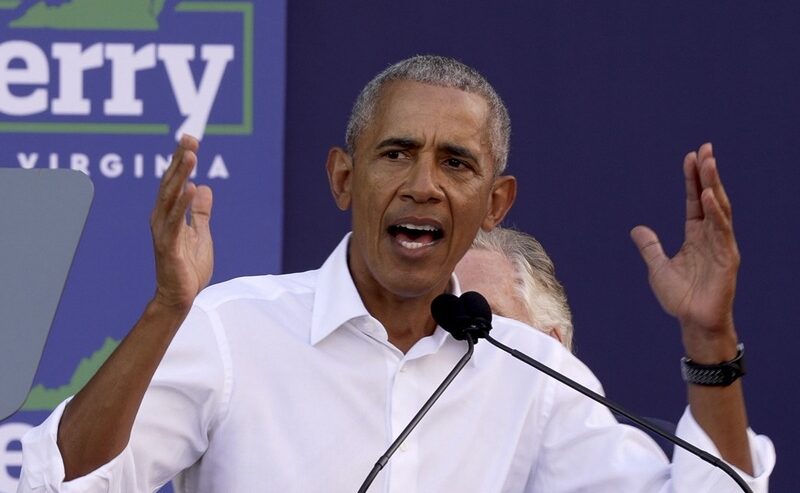In a sharply worded response, the White House on Monday, June 16, dismissed former President Barack Obama’s criticism of President Donald Trump’s immigration strategy, asserting that Americans were not interested in Obama’s perspective.
Spokesperson Abigail Jackson told the Daily Beast that if voters had sided with Obama, they would have chosen “open‑borders radical, Kamala Harris,” adding, “But it’s President Trump that’s in the White House, and he is fulfilling his promise … securing our borders and deporting illegal aliens.”
The exchange ignited after Obama used X on Sunday to highlight the dangers of framing immigrants as adversaries. He wrote that his Deferred Action for Childhood Arrivals program—established 13 years ago—demonstrated “how we can be a nation of immigrants and a nation of laws.”
Obama invoked DACA to underscore his point: “Thirteen years ago, my administration acted to protect young people who were American in every single way but one: on paper,” he said. He argued that today’s immigrants “just want to live, work, and support their communities” and deserve “treating each other with dignity and respect.”
Shortly after Obama’s post, President Trump used Truth Social to call for ICE agents to execute the “single largest Mass Deportation Program in History,” targeting “Millions upon Millions of Illegal Aliens,” particularly in cities led by Democrats such as Los Angeles, California, Chicago, Illinois, and New York City. Trump claimed that immigrants in those cities manipulate elections and drain the welfare system—a claim he made “without providing evidence.”
Trump stated that he had issued a directive across his administration to commit every available resource to this effort and to stop the surge of what he called destructive migration, which he claimed has transformed once peaceful towns into places marked by third-world conditions.
According to reporting from Vox, Trump’s deportation figures remain significantly lower than Obama’s peak of about 438,000 removals in 2013. Despite rhetoric about mass deportations and proposals for a $155 billion enforcement plan, Trump has not yet met Obama’s numbers. Vox attributes this to fewer border crossings and increasing resistance from states and local agencies.
This political sparring coincides with a new wave of aggressive ICE operations, especially workplace raids in Los Angeles, which have sparked protests nationwide.
CNN reports that the Department of Homeland Security recently reversed policy directives that had curtailed immigration raids at farms, hotels, and restaurants—moves prompted by direct White House pressure to meet enforcement targets. According to a source, during a Monday morning field call, June 16, officials from Immigration and Customs Enforcement informed leaders from field offices nationwide that they are required to resume worksite raids. This directive reverses guidance given just days earlier after facing pressure from industries that depend on migrant labor.
In response, states like California have begun advancing laws to shield immigrants from federal enforcement, restricting ICE’s access to hospitals, schools, and public spaces without warrants. California lawmakers are pushing these bills in an effort to limit ICE’s influence. Politico notes Democrats are mobilizing against what they describe as “military-style operations.”
Public reaction remains polarized. A Pew Research Center poll from June 2025 found that approximately 60 percent of U.S. adults disapprove of Trump–era measures—including asylum restrictions and surges in ICE raids—while Republicans largely back the efforts. Half of respondents said deportations have been “too careless,” and a majority support a pathway to legal status for undocumented individuals.
Obama’s administration reframed enforcement by focusing on undocumented individuals with serious criminal convictions. That approach kept total deportation numbers lower while prioritizing threats to public safety. Trump’s current policy, by contrast, emphasizes broad workplace and community enforcement, but has not yet delivered on its mass deportation claims.
Despite Trump’s vocal support for ICE, the data tell a different story: enforcement numbers remain below Obama’s 2013 high point. Still, the Trump administration continues to push resources toward ramping up raids in Democrat-led regions.
This public clash underscores an enduring political division over immigration enforcement, national identity, and the role of deportation in American society. Obama’s appeal stresses dignity and legal pathways; Trump’s messaging centers on rule enforcement and national security.











